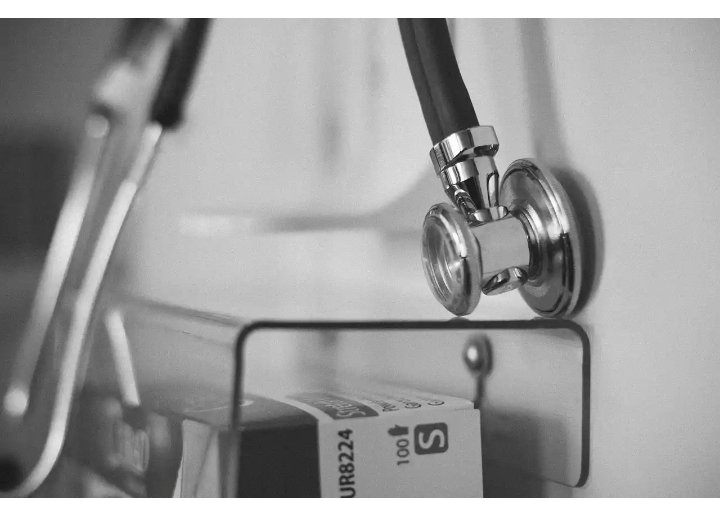Greetings dear friends, I am excited to participate in this insightful Contest which will help chart a new course in our healthcare system, especially in countries like Nigeria. I equally wish to thank the admins of this community for keeping the community running and bringing up such a topic.
Talking about the healthcare system, I often tell people who cares to listen that the three important sectors for any society and government who wishes to succeed should look into are; Education sector, health sector and the security sector. For the purpose of this contest, I would like to focus on the health sector, specifically examining the healthcare system in Nigeria, the challenges it faces, and potential solutions moving forward.
WHAT IS HEALTH-CARE
Healthcare is the organized provision of medical services to individuals or communities with the aim of improving their health and well-being. It includes services like medical care, health education, and prevention of diseases. A well-functioning healthcare system is crucial for a country's overall development, enabling citizens to lead healthy and productive lives. It's important to recognize that human resources play a vital role in ensuring the effective operation of any healthcare system.
In Nigeria, the healthcare system faces many challenges, leading to a situation where the health of the people is compromised. A typical healthcare experience for many Nigerians especially in rural areas is one marked by overcrowded hospitals, long wait times, and a lack of essential medical supplies. Many individuals, especially in rural areas, struggle to access even the most basic health services. This often forces them to seek treatment abroad for those who can afford and those who can't are left to face their fate. Seeking of medical treatment abroad is contributing to the growing medical tourism problem.
CHALLENGES OF HEALTHCARE SYSTEM IN NIGERIA
1 . LACK OF MEDICAL FACILITIES
One of the most pressing issues in Nigeria’s healthcare system is the lack of medical facilities. Many hospitals, particularly in rural areas, are poorly equipped or completely lack modern medical equipment. Even in urban areas, public hospitals are often overcrowded and under-resourced, leaving citizens with limited options for receiving quality care. Even in some rural areas that the equipment are available, if properly check one will find out that most of the equipment have expired which might lead to inaccuracy in some result of medicine examination.
I recall a situation where a relative visited the primary health center in our community to get tested for malaria and typhoid. The tests were conducted, and the results came back negative, prompting the administration of some medication. However, after a few weeks, the lady fell ill again and decided to visit a private laboratory for another test. This time, the results were positive, suggesting that the initial test at the primary health center may have been inaccurate, possibly due to outdated or substandard testing equipment. @gloreal is in the health sector and can attest to some of these facts.
2 . SHORTAGE OF HEALTHCARE WORKERS DUE TO THE "JAPA" SYNDROME
Another major issue is the shortage of healthcare workers. Nigeria faces a serious deficit of doctors, nurses, and other medical professionals, which hampers the ability of hospitals to provide adequate care. This shortage is further exacerbated by the "japa" syndrome, where healthcare professionals, seeking better opportunities and improved living conditions abroad, leave the country in search of greener pastures. This brain drain results in an even greater strain on the already stretched healthcare system.
3 . UNDERPAYMENT AND POOR ALLOWANCE
Additionally, poor pay and allowances for healthcare workers in Nigeria contribute to their dissatisfaction and eventual migration. Many medical professionals are overworked and underpaid, which demotivates them from staying in the profession or working efficiently. Some even pay more attention to their private businesses and establishment.
PATH TO PROGRESS
To address these challenges and chart a new course, several innovations and reforms are needed.
1 . Firstly, there is a need to invest in healthcare infrastructure. This means upgrading existing hospitals, providing necessary equipment, and building new healthcare facilities, especially in underserved areas. Secondly, the government should improve the pay and working conditions of healthcare workers, offering competitive salaries and benefits to retain them.
2 . Training healthcare workers is also vital to improving the quality of care in Nigeria. Programs should be introduced to continually update the knowledge and skills of healthcare professionals to meet modern medical standards.
3 . Provision of staff quarters in rural areas will encourage healthcare workers to stay and serve in these communities. When healthcare workers are provided with comfortable living conditions, they are more likely to remain in their positions and offer quality care to the underserved populations.
4 . The use of technology in healthcare should also be encouraged. Telemedicine, mobile health apps, and electronic health records can make healthcare more accessible and efficient, particularly in remote areas.
5 . Lastly, there should be stronger policies to encourage the retention of medical professionals, such as loan forgiveness programs for those who choose to stay and work in Nigeria.
With these innovations, Nigeria can overcome the challenges facing its healthcare system and create a healthier future for its people.
Funnily enough, if peaceful protest as @quduus1 suggested can help, then it's an innovation.
@yhukayibuot, @aniakpan drop your input and subscribe to the community.
Thanks for stopping by @nsigo1 blog



@nsigo1, your post presents a comprehensive analysis of Nigeria’s healthcare challenges and potential solutions. The emphasis on infrastructure, telemedicine, and retaining healthcare professionals aligns with global best practices. How can we balance the urgent need for infrastructure with the long-term retention of medical talent, especially amidst the 'japa' trend?
Addressing the payment and allowances of medical personnel can serve as a significant motivational factor, encouraging them to remain in service while the government focuses on improving healthcare infrastructure.
Furthermore, this is an area where well-meaning citizens in various communities should step in. While the government tackles one aspect, capable individuals can address others.
It is a collective effort that requires the involvement of everyone, not just the government.
You have nailed it
Thank you sir
Uwc
You nailed it!
Hmm seems for Africa we have this looming problem of rural areas not getting adequate health care where they come from.
I never knew Nigeria had a shortage of doctors because of people going to the states to work. But as you rightly said they will rather go and work outside cause of how low their salaries and allowances. I think for this is looked at people will come back and work in Nigeria as well.
Well, we pray it gets better soon